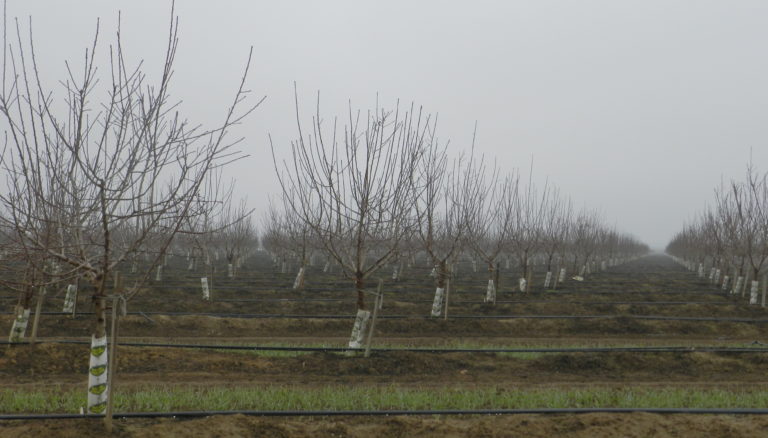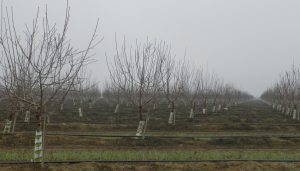

Over most of its forty-six year history, the California Environmental Quality Act (CEQA) has been most often associated with developers and urban sprawl. With few exceptions, agriculture was virtually exempt from CEQA review.
The almond boom and a six-year drought changed everything. Today, farming is no longer surrounded by a holy aura. The farmer as corporate businessman is as much a part of the ag image as the family farmer on his tractor.
Seen as the business it is, farming should get as much environmental assessment as any other business. That’s especially true since agriculture uses anywhere from sixty to eighty percent of the state’s water that’s available for human use (the number depends on how the water is accounted for; an explanation of the different figures is here).
Almond orchards, for example, have had far more environmental impact than anyone could have guessed at the onset of the almond boom—one of the least-publicized is loss of rangeland and open space, including irrigated pasture.
For example, when the Oakdale Irrigation District (OID) offers farmers cash benefits to fallow their land, the land most often fallowed is irrigated pasture. Theoretically, farmers will utilize the gains from fallowing to improve irrigation efficiency. What often actually happens is the farmers who opt for the program also put in almond orchards. The orchards not only remove important open space and wildlife habitat, they replace flood irrigation with drip lines.
In the northern San Joaquin Valley, flood irrigation is the major factor in groundwater recharge. Drip is widely seen as beneficial because it conserves water, but its negative impacts are rarely acknowledged. Drip irrigation adds nothing to the aquifer, and it can increase soil salinity.
The OID fallowing program is funded by water sales. The sales are most often to buyers from Westlands Water District and other customers to the south of OID. The water shipped south also feeds almond orchards, and again, we sustain the loss of rangeland and open space, with all the consequent impacts. Over 77,000 acres of almonds were added in the Valley just over the past year alone, and almost 108,000 since June of 2015.
OID management claims there are no negative impacts from its fallowing program, but rangeland and open space are important in too many ways to count, including their role in carbon sequestration, groundwater recharge, wildlife habitat, and recreational and economic values. Loss of rangeland and open space, including irrigated pasture, results in a host of negative impacts.
The Oakdale Groundwater Alliance claims OID should perform a full environmental impact review before implementing its fallowing program, which it calls the, “On-Farm Conservation Program.” Given the exponential expansion of almond acreage over the last decade, it’s now time for a closer look at public programs that promote increased almond acreage. And any program that replaces flood irrigation with drip should also be reviewed for its effects on groundwater recharge.
Agricultural immunity from CEQA review no longer makes sense. Just as urban sprawl is a threat to public resources and quality of life, so too is the expansion of an almond monoculture that has had impacts far beyond any envisioned even a decade ago.
[…] Oakdale Irrigation District lawsuit about more than water: “Over most of its forty-six year history, the California Environmental Quality Act (CEQA) has been most often associated with developers and urban sprawl. With few exceptions, agriculture was virtually exempt from CEQA review. The almond boom and a six-year drought changed everything. Today, farming is no longer surrounded by a holy aura. The farmer as corporate businessman is as much a part of the ag image as the family farmer on his tractor. … ” Read more from The Valley Citizen here: Oakdale Irrigation District lawsuit about more than water […]
Comments are closed.